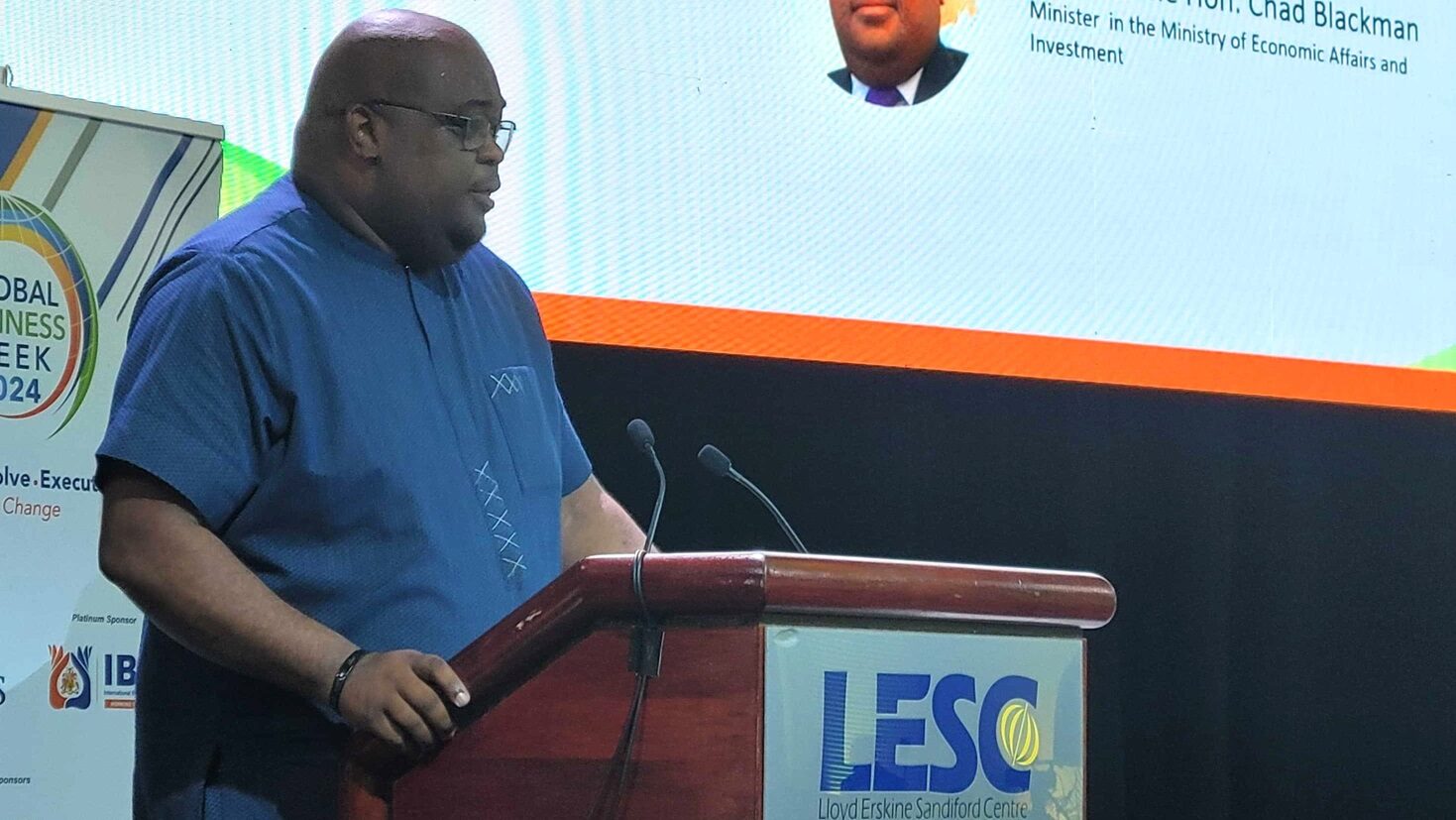Barbados Aims for US$3 Billion in Annual Foreign Direct Investment to Achieve Economic Growth Targets Amid Global Innovation Index Success

October 25, 2024
Barbados aims to attract up to US$3 billion in foreign direct investment for economic growth, despite achieving top Caribbean innovation ranking. Emphasis on continuous innovation and sustainability for competitiveness.
Barbados needs to attract up to US$3 billion ($6 billion) in annual foreign direct investment to achieve ambitious economic growth targets of six to seven per cent, the Minister in the Ministry of Economic Affairs and Investment declared on Thursday, despite the country achieving its highest-ever ranking on a global innovation index.
Senator Chad Blackman said that while Barbados is now ranked the Caribbean’s most innovative nation in the 2024 Global Innovation Index (GII), it must not become complacent.
“If we want to move from an economy that enjoys three to four per cent growth per year and move into six to seven per cent and above per year, we are going to have to attract at least two to three billion US dollars per year in foreign direct investment,” he told the Barbados International Business Association (BIBA) Global Business Week Conference.
Barbados has ranked 77th out of 133 countries on the GII, positioning it as the most creative country in the region. This placement also marks the country’s return to the index since 2016.
But the minister sought to temper the glowing report with a call for constant innovation and forward-thinking if Barbados is to remain competitive in the global market.
“We must be innovative if we are to remain competitive and to grow,” he said, further underscoring that the country must also ensure sustainability is achieved.
Drawing comparisons with the United Arab Emirates (UAE), Senator Blackman noted the importance of maintaining momentum even after reaching key performance targets.
“One of the things that struck me about the UAE as a jurisdiction is their quest for constant success. They set up key performance indicators, they’ve reached them, but they don’t have a view of, ‘I’ve arrived’,” he said.
“The question then becomes, how can we in Barbados, particularly as a jurisdiction, ensure that everything we do is in that focus?”
While Barbados’ recent ranking is an encouraging sign, Senator Blackman against resting on these achievements.
“There can be a natural temptation to believe that because we scored well in the index that we’ve arrived, [but] we constantly have to be in a mode of attaining these key performance indicators, these benchmarks of success, and going beyond,” he said.
Senator Blackman also highlighted the urgency of improving the ease of doing business in Barbados, particularly in areas like company registration. While acknowledging recent improvements, he urged further innovation in this space.
“To establish a company [in the UAE], you can do it yourself online, but also using artificial intelligence, you can literally open a company in six minutes,” he said, comparing it to the longer registration process in Barbados which currently takes several days.
The former diplomat also called for a realignment of the education system to better meet the needs of the business sector. He emphasised that Barbados’ workforce needs to be equipped with the skills necessary for long-term competitiveness.
“There is a misalignment of our educational system and the needs of the international business sector, the local business sector, and where the economy needs to go,” Senator Blackman said, calling for educational reform to ensure Barbados remains competitive for the next 50 years.
He reaffirmed the administration’s commitment to working with the business community to remove any barriers to growth, noting that attracting foreign investment is key to achieving higher levels of economic growth.


